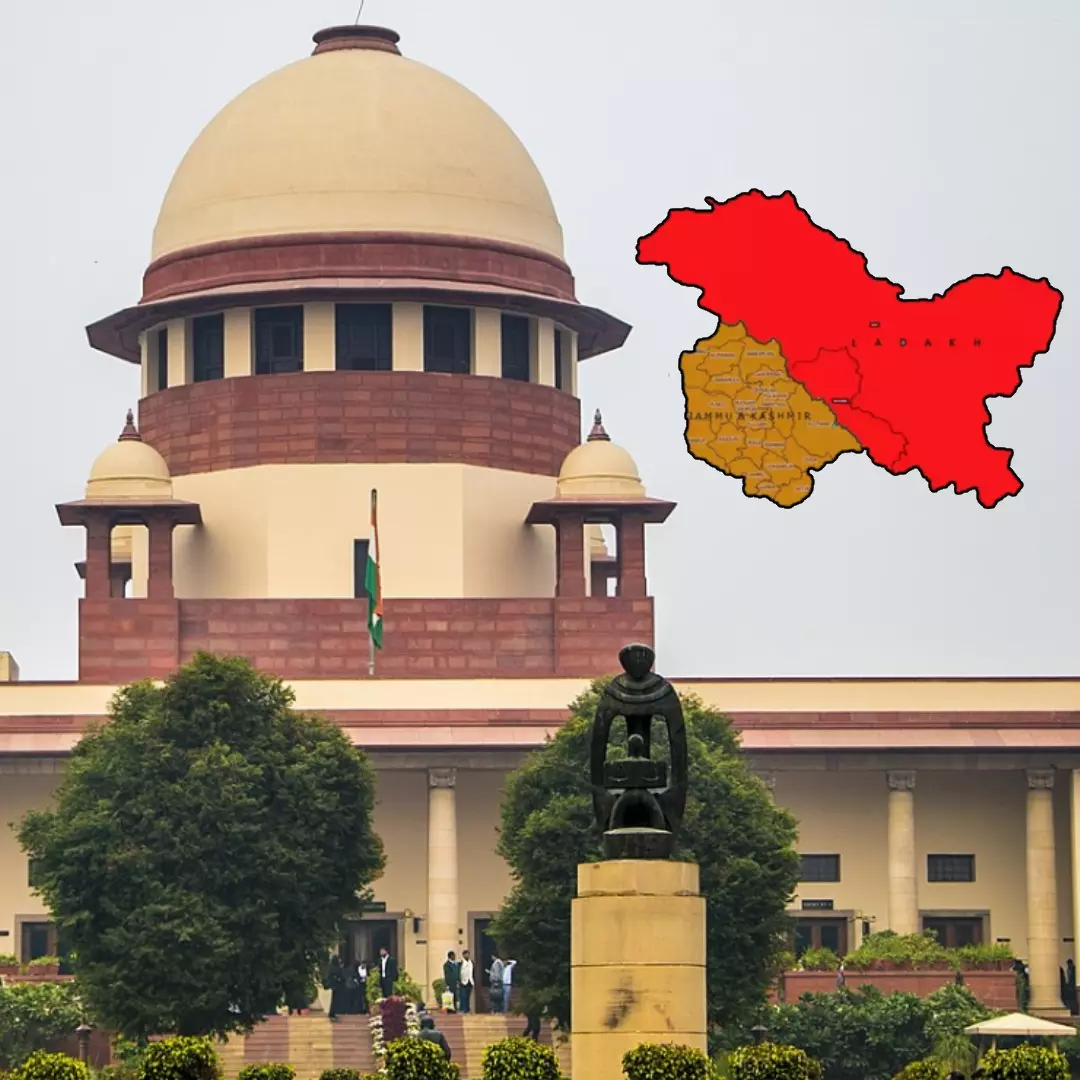In a crucial development, the Supreme Court of India is set to commence hearings on a batch of petitions challenging the abrogation of Article 370 and the bifurcation of the erstwhile state of Jammu and Kashmir into two Union territories. Nearly four years after the Central government’s decision in August 2019, a Constitution Bench headed by Chief Justice of India DY Chandrachud will deliberate on the matter on July 11.
The hearing, scheduled for today, will consider over 20 petitions that challenge the government’s move to revoke Article 370, which granted special status to Jammu and Kashmir. The subsequent division of the state into the Union territories of Jammu and Kashmir, and Ladakh will also be under scrutiny.
The bench, comprising Chief Justice DY Chandrachud, along with Justices Sanjay Kishan Kaul, Sanjiv Khanna, BR Gavai, and Surya Kant, will hear arguments from both sides. The case holds significant implications for the constitutional validity of the government’s decision and its impact on the rights and freedoms of the people of Jammu and Kashmir.
Previously, in March 2020, a five-judge Constitution Bench declined to refer the petitions to a seven-judge Constitution Bench, stating that there was no conflict between the two judgments of the Supreme Court. However, the petitioners had argued for a reference, citing conflicting judgments related to the interpretation of Article 370.
The hearing today is expected to address various legal aspects, including the contention that the revocation of Article 370 infringed upon the democratic rights and guarantees enshrined in the Constitution. Additionally, the question of whether bureaucrat Shah Faesal can withdraw his petition will also be considered.
The Supreme Court’s verdict on these petitions will have far-reaching implications for the constitutional framework and the future of Jammu and Kashmir. The hearing represents a crucial milestone in the ongoing legal battle surrounding the abrogation of Article 370 and the bifurcation of the region, reported The Times Of India.
After Maharaja Hari Singh, the ruler of the princely state of Jammu and Kashmir, signed the Instrument of Accession on October 26, 1947, the state became a part of the Dominion of India. Article 370 of the Indian Constitution states that J&K is covered only by Articles 1 and 370. The President, in consultation with the state government, was to decide on the application of Other Articles.
What Is Article 370?
Article 370, which emerged from the Instrument of Accession signed by Maharaja Hari Singh in 1947, granted special status to Jammu and Kashmir. Enacted on October 17, 1949, as a “temporary clause,” Article 370 exempted Jammu and Kashmir from the Indian constitution. It allowed the state to create its own constitution and limited the legislative authority of the Indian Parliament in the region. Proposed as Article 306A in the draft constitution, it was later incorporated as Article 370 by Sir Narasimha Gopalaswami Ayyangar.
The Jammu and Kashmir Constituent Assembly dissolved after formulating the state constitution. However, on January 25, 1957, it did not endorse the abrogation or revision of Article 370, leaving its status uncertain.
Article 370 of the Indian Constitution gave rise to Article 35A, which appeared only in Appendix I and not in the main body of the Constitution. Both articles, until their removal in August 2019, conferred exceptional status and rights upon the state of J&K and its residents.
Sheikh Abdullah, chosen by Jawaharlal Nehru and Maharaja Hari Singh, served as the drafter of Article 370. The Constitution (Application to Jammu & Kashmir) Order, 2019, introduced by Union Home Minister Amit Shah, mandated that J&K must abide by all articles of the Indian Constitution, effectively suspending J&K’s own constitution. Additionally, the state’s Ranbir Penal Code was replaced by the Indian Penal Code (IPC), 1860.
The amendment to Article 370 was made under Clause 3 of Article 370, bypassing the conventional amending provision provided in Article 368 of the constitution.
Article 35A granted special privileges and rights to permanent residents of Jammu and Kashmir, including the right to purchase property and preferential treatment in public sector employment. It stipulated that only citizens of Jammu and Kashmir residing there year-round were eligible to buy property and vote in local elections. Article 35A was repealed by the Jammu and Kashmir Reorganization Act of 2019.
With the repeal of Article 370, the central government no longer requires permission from the state government to implement laws in Jammu and Kashmir. Article 35A lost its effect after the repeal of Article 370. Consequently, there is no longer a distinction between permanent residents of J&K and other citizens of the state.
The removal of Article 370 took place through the Constitution (Application to Jammu and Kashmir) Order, 2019, issued by the President of India on August 5, 2019. As a result, Jammu and Kashmir no longer has its own constitution, flag, or anthem, and its residents no longer hold dual citizenship. The region now abides by all legislative amendments made by the Indian Parliament.
Following the abolition of Article 370, Jammu & Kashmir is fully governed by the Indian Constitution and all 890 Central legislations. The repeal of Article 370 solidified Jammu and Kashmir’s integration into India both legally and practically. Article 370, initially perceived as a temporary provision, was seen as ineffective and necessitated its removal.
Also Read: Indian Consulate In San Francisco Allegedly Vandalised By Khalistani Supporters, US Condemns Attack
https://thelogicalindian.com/h-upload/2023/07/04/500x300_232449-web-2023-07-04t171527758.webp
Trending
2023-07-04 11:59:20.0
Supreme Court To Hear Petitions On Article 370 Abrogation On July 11












